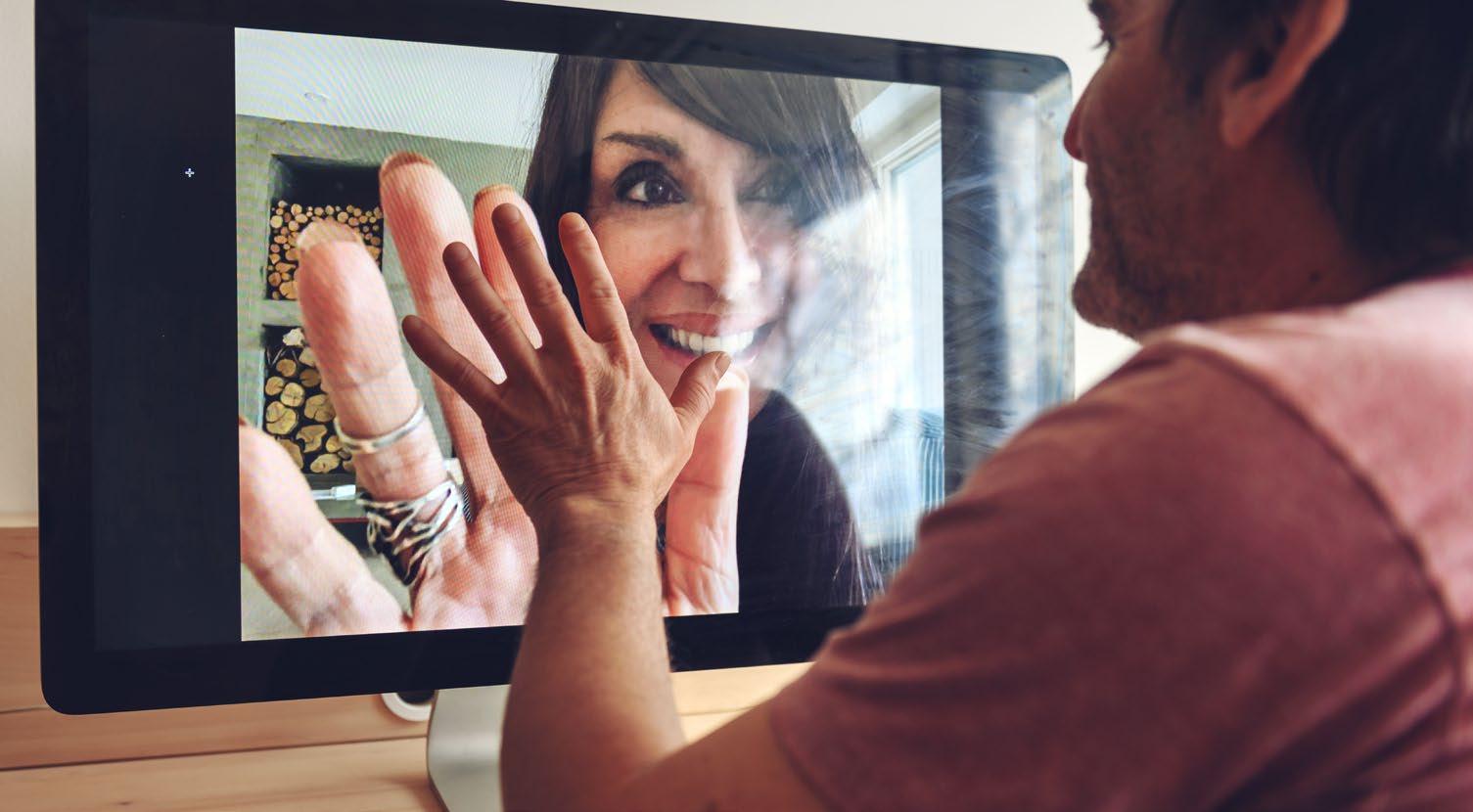
4 minute read
COVID AND ISOLATION BEATING THE OTHER EPIDEMIC
By Dr. Robbie Babins-Wagner
Dr. Robbie Babins-Wagner is CEO of the Calgary Counselling Centre. She is also an Adjunct Professor and Sessional Instructor in the Faculty of Social Work, University of Calgary.
Advertisement
One evening about a year ago, as a friend was leaving my house after sharing a glass of wine, I instinctively gave her a hug at the front door. She laughed as she said: “I don’t think you’re supposed to do that,” and I dropped my arms immediately, the brand new reality of pandemic social protocols landing on me like an anvil.
It was mid-March. Thinking back, it feels like it’s been a decade. Covid-19 cases were climbing and public health measures were coming in across Canada fast and furious. Of course, we are all too familiar with these measures now: Wear a mask. Stay two metres apart from each other. Don’t go out unless you have to. Stick to your household cohort.
Preventing aerosols from spreading in an effort to reduce community transmission of the coronavirus is causing an epidemic of isolation. No one is completely immune from the mental health effects of isolation and far too many people in our communities are devastated by it.
IMPACT FELT BY ALL
Isolation affects young and old. Introverts and extroverts. Medically vulnerable people. Those who live alone. People trying to date. The unemployed. Teenagers in school. People who Zoom and those who don’t. Happy marriages. Unhappy ones. Isolation cuts across every demographic.
Isolation can result in increasing vulnerability to severe mental health issues, including stress, anxiety and depression. Isolation debilitates. It can even kill. We all need social contact; we all need contact with others no matter what our age and stage of life.

Day, and the novelty of Friday night Zoom calls with your old high school or other friends has fallen away, it’s even more important to find meaningful ways to connect with people.
TAKE ACTION
Pick up the phone. Yes, schedule yet another Zoom call. Reach out to someone who is alone. See if they need help with something, anything: picking up groceries, shoveling snow from the sidewalk. Even if their fridge is full and the walks are clear, drop off a note, a bag of candy, some little token to brighten their day. That small act of giving will make you feel better too. Doing something for someone else is a doubleheader: it reduces their isolation and yours.
As the vaccines for, and variants of, the virus race toward the finish line of our mandatory isolation, it’s time to double down on creating social interactions. If you are connected to a religious or spiritual community, find out if they offer social activities or services online. This will connect you to a group and you may discover someone you know is already a part of it, making an even more natural connection.
If you’ve thought about volunteering but have never been able to find the time, explore the opportunities now. There are plenty of volunteer roles you can do from your home. Charities and non-profits across the country have found ways to engage and support volunteers remotely. Reach out to the local volunteer centre and explore what you could do to help your community, and yourself.
WALK A DOG – ANYONE’S DOG
Even if you’re a cat person, consider dropping by a dog park for a walk. There are countless small socially distanced conversations that happen in dog parks every day. Even a few words about the weather can help foster a much-needed human connection in this time of seemingly endless isolation.
Spring is just around the corner. Soon we can all spend more time outside, safely spending time with friends, neighbours and colleagues. We’ve come so far. We’re almost there. But for many, the isolation is already too much. For many, the end is not in sight. This is when we all need to take extra special care of each other, to make contact with people to help lessen the feelings of isolation for the good of our own mental health and that of others in our community.
One day, my friend will come over for another glass of wine. And one day, I will give her a giant bear hug at the front door. But for now, I’ll just give her a call.











